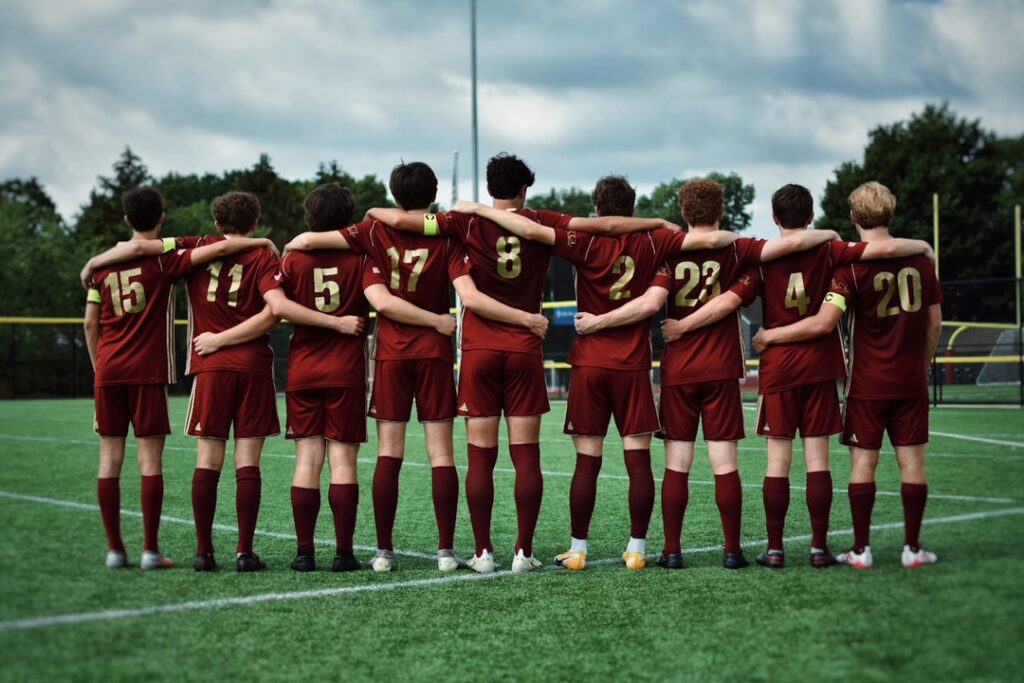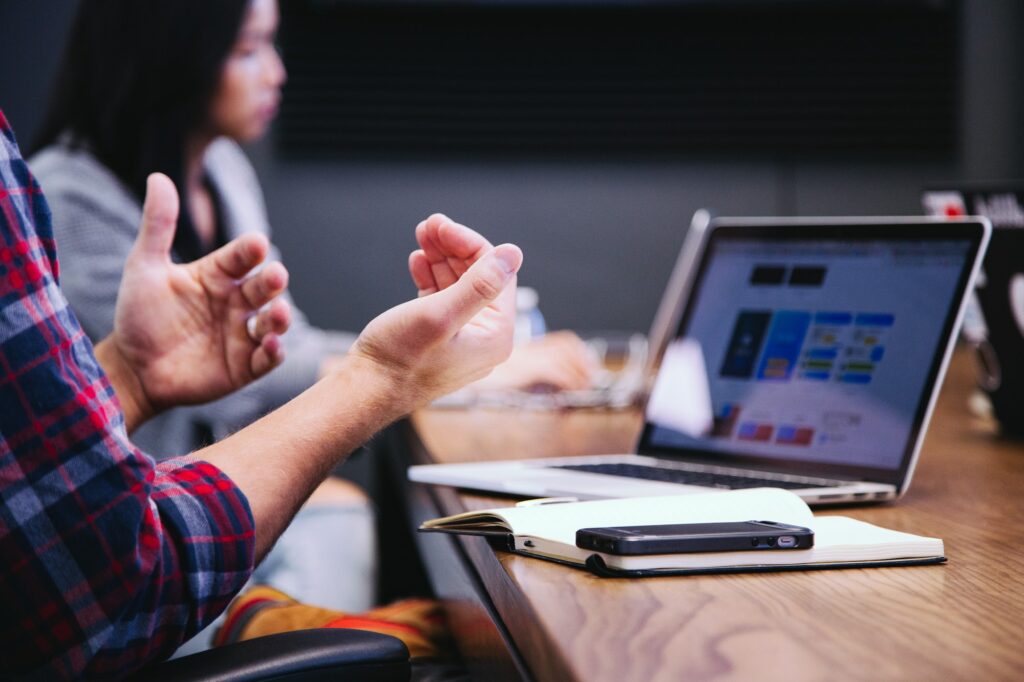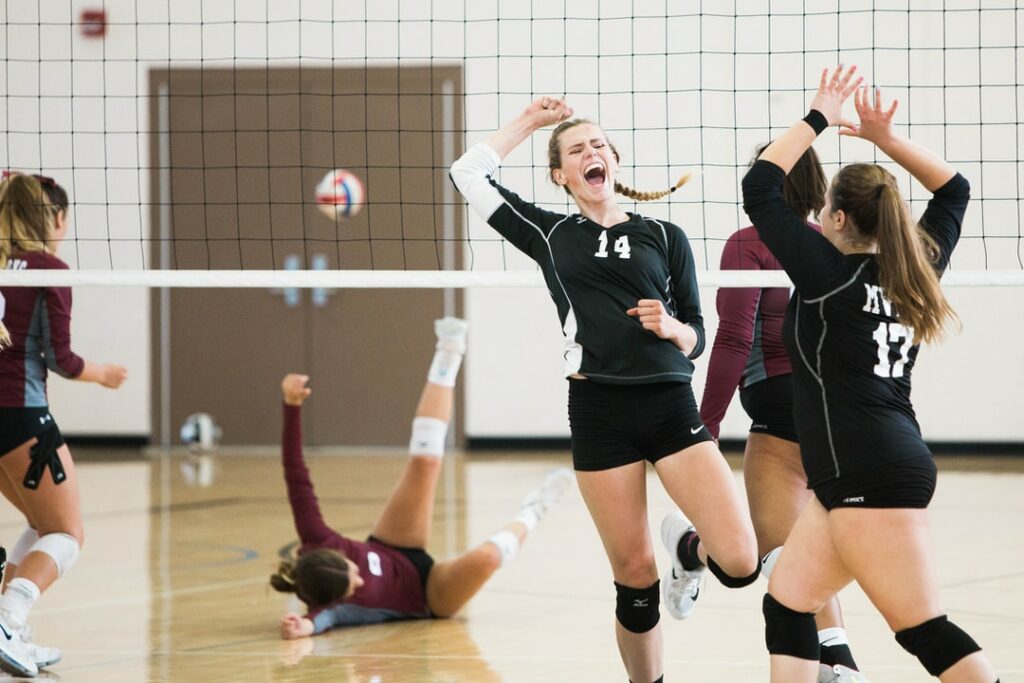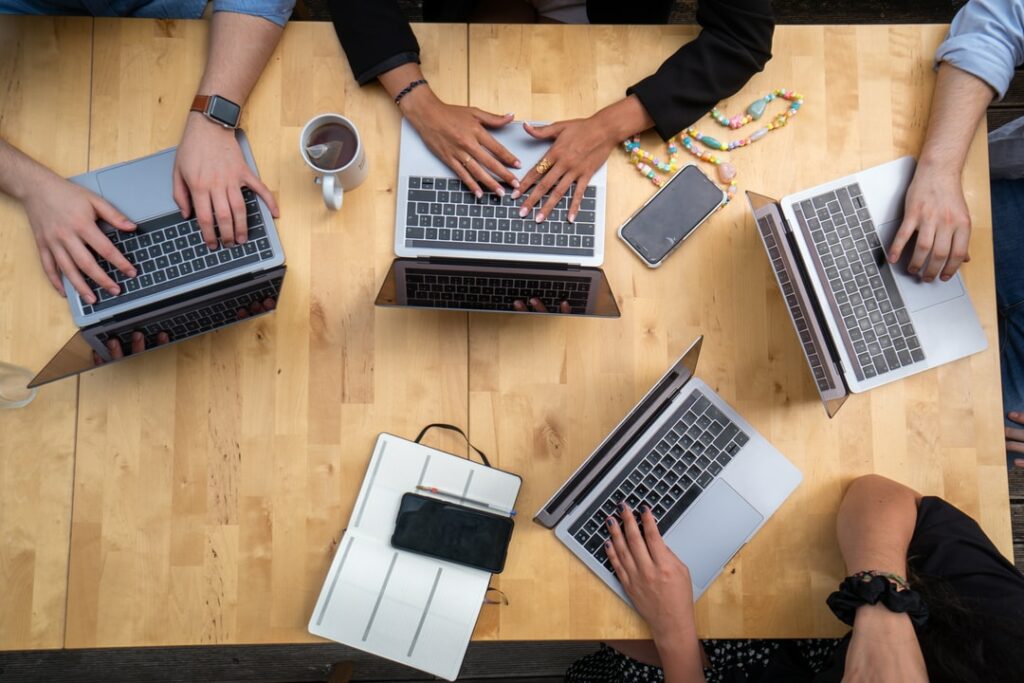INDUSTRY NEWS
Last year legislation passed allowing NCAA athletes to partner with brands on social content, generating a whirlwind of attention for athlete influencers. Now that time has passed, we look at which businesses and creators are actively participating in NIL deals and the challenges ahead.

Universities have been scrambling to get their brand partnership programs, or “collectives,” off the ground. More than sixty NIL collectives have materialized in recent months, with insiders expecting the trend to spread to every school in the NCAA Power 5 conferences and beyond.
So what are NIL collectives? Essentially, these are big non-profit organizations bankrolled by groups of powerful alumni and boosters — people who donate large sums of money to athletic departments. The University of North Carolina’s collective is called Heels4Life; the University of Michigan has the Valiant Management Group; and so on. Though closely affiliated with a university, they function as third parties.
Okay, second question: what do NIL collectives actually do? Generally speaking, these collectives serve as catch-alls to help student-athletes with anything related to monetizing their personal brand:
Social content. They help students secure brand partnerships for social — often through third-party influencer marketing agencies.
Local sponsors. They get students gigs with local businesses — particularly those owned by donors. Athletes might appear at an event, or do a social post for a local car dealership.
NFTs. Some collectives help students mint NFTs and launch NFT campaigns. Division Street, the University of Oregon collective helmed by Nike co-founder and Ducks alum Phil Knight, for example.
Admin tasks. They help students with miscellaneous tangentials, for instance, providing legal services for filing NIL profits.
A big concern with NIL collectives is that they facilitate “pay for play,” acting as a backdoor through which boosters funnel money to athletes who join the team—a major NCAA violation. Shrewd coaches are allegedly using the promise of easy money from collectives to lure highly-coveted athletes to their respective schools.
That’s part of the reason NIL collectives are so widely adopted. Schools who don’t have NIL collectives risk losing out to the ones that do. An Arizona State collective, for instance, was announced after star football players began transferring to schools with collectives.
Currently, the NCAA is looking to clamp down on these abuses, finalizing guidelines to address pay-for-play aspects of booster collectives, according to Sports Illustrated. However, it remains to be seen if the organization can put the genie back in the bottle.
Beyond regulatory concerns, another reservation is how successful collectives will be at promoting brands. After all, their primary concern is recruiting players to their university. They have limited knowledge of brand endorsements on social media, and their alignment with any brand’s vision is suspect.

While NIL collectives are trending for all the wrong reasons, a subset of student athletes are working with agents to land endorsement deals, which is now allowed under the revised monetization rules. Many well-known talent and influencer marketing agencies have added college athletes to their rosters of clients. This route is typically reserved for mega-influencers and projected stars at the next level.
These campaigns involve some of the biggest names in college sports, have the furthest reach, and the content they generate stands out for its quality. Some of our recent favorites include:
Aliyah Boston (103K Instagram followers), the premier player on the NCAA champion South Carolina Gamecocks, has created social content for Crocs footwear and Bose audio. As part of her partnership with Under Armour, she’s slated to host a basketball camp in her hometown of St. Thomas, Virgin Islands, which should also generate excellent social content.
Paige Bueckers (1M Instagram, 369.4K TikTok), who competed against Boston in the 2022 National Championship game, has sponsorships with CashApp and StockX. She’s also a student athlete brand ambassador for Chegg, the digital textbook and homework help brand.
Suni Lee (1.75M Instagram, 1.6M TikTok), the Auburn gymnast and former Olympic great, has partnered with a number of high-profile brands here recently. Her content for Invisalign, the metal braces alternative brand, has her sharing her morning self-care routine on TikTok. Other posts feature her spritzing Marc Jacobs perfume and turning cartwheels.

NIL brand opportunities are inevitably trickling down into the high school ranks. Jaden Rashada, a trending dual-threat quarterback from California, became the first high school athlete to sign an NIL deal back in December.
His endorsement was for a little-known mobile app, but the deals are becoming increasingly lucrative. Forbes reports that Jared McCain (486K Instagram, 1.5M TikTok), a Duke basketball commit, recently created social content for the jewelry brand Kay Jewelers.
Other high school players are reportedly clinching major contracts. In a story that broke last month by the Atlantic, a high school junior signed a sponsorship deal with an NIL collective valued at up to eight million dollars if fulfilled in full. Both parties remain anonymous.
High school NIL is a fluid situation. At present only a handful of states allow high school students to monetize their name, image, and likeness. States that initially prohibited high schoolers from earning money are reassessing the situation. As interim NIL laws are repealed and rewritten, look for more interplay between brands and athletes at the high school level.

NIL legislation is reshaping the landscape of amateur athletics, but the same rules to social marketing still apply. While NIL collectives are multiplying, the level of dedication they have to their clients and finding deals for their talent is questionable.
Agencies, on the other hand, have intimate knowledge on running influencer campaigns. When you work with us at The Social Standard, you get strategy, campaign management, experience, reporting, and expertise – all the same things you would expect from a social marketing campaign these days.
The Social Standard is a full-service influencer marketing agency driven by setting the standard for the industry and then reaching even higher. Our team is obsessed with finding the right influencers for our partners. But we are way more than just matchmakers. We are strategists that develop effective campaigns to delight, inspire, entertain and hit business goals. From concept to seamless execution, we work with clients such as Adobe, FiatChrysler, L’Oreal, Motorola and others, positioning them as pioneers in innovative influencer marketing and helping talent thrive in the creator economy. Want to learn more about our agency’s work? Shoot us an email at partner@sostandard.com. We’d love to collaborate.